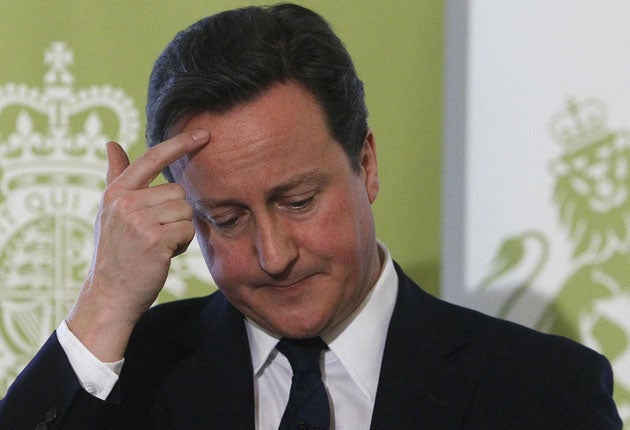Your reforms could destroy the NHS, MPs tell Cameron

The Government's proposed health reforms are like a "tossing a grenade" under the NHS and it is uncertain if they will succeed, MPs warn today.
Andrew Lansley, the Health Secretary, will publish a Bill tomorrow outlining his plans for the latest reorganisation of the NHS. Under his proposals, GPs will join together as consortiums to "buy" operations and patient care from hospitals and other public or private sector providers.
Hospitals that fail to compete competitively could be taken over, while primary care trusts that commission care at the moment will be abolished entirely. But the Health Select Committee said the reforms would be difficult to achieve at a time when the NHS was also trying to find savings of 4 per cent a year for each of the next four years. This was already "extremely challenging", the MPs said, and that failure to properly plan for the upheaval was of "particular concern" in the current financial context.
Sarah Wollaston, a former GP and Tory member of the committee, went further by saying that the reforms would be like a "tossing a grenade" under the health service. MPs said they were "surprised" by the "significant policy shift" between what the Coalition promised to do in May and the plans set out in its health White Paper in July. Before the election, David Cameron promised to "stop the top-down reorganisations of the NHS" and there was no mention of the reorganisation in the Coalition Agreement.
"The unexplained change in approach between the Coalition programme and the White Paper has led to considerable uncertainty about whether the Government intends to build on existing experience within the NHS or create a major discontinuity," they said. "This uncertainty has been compounded by apparently inconsistent messages."
But in speech on public sector reform yesterday, Mr Cameron suggested the Government had come to the conclusion after taking power that it had to reform public services immediately, rather than waiting for financial pressures to ease. Mr Cameron said delaying reform would simply result in "institutional inertia" against change. "Every year without modernisation the costs of our public services escalate," he said. "Demand rises, the chains of commands can grow, costs may go up, inefficiencies become more entrenched. Pretending that there is some 'easy option' of sticking with the status quo and hoping that a little bit of extra money will smooth over the challenges is a complete fiction. Put another way: it's not that we can't afford to modernise; it's that we can't afford not to modernise."
Today's report by the Health Select Committee also points to a potential conflict between the principle of patient choice – such as patients being able to have their treatment anywhere, including in the private sector at NHS prices – and the ability of GPs to set priorities based on how much money is available. Furthermore, MPs asked the Government for clarification on the potential for private companies to take legal action against GPs if they felt the commissioning process was unfair to them.
Stephen Dorrell, chairman of the health committee, said it was vital that a wide range of health professionals was involved in the reforms. "The government proposals clearly engage GPs in commissioning and that's a key step forward... but in the view of the committee it can't just be GPs, it has to be GPs as a catalyst for the wider community." He said the committee was acting as a "critical friend" to the Government, and shared the objectives of improving patient care.
Cameron's NHS Prescription
* All 10 Strategic Health Authorities and 151 Primary Care Trusts to be abolished. Together they currently control about 80 per cent of the NHS budget.
* 500 consortiums of GPs to take responsibility for buying care such as hospital admissions and ambulance services.
* An independent NHS Board to set standards and hold GPs to account. It would also hold the purse strings for other services, such as dentistry.
* All hospitals to become self-governing Foundation Trusts by 2014.
* Some hospitals to be encouraged to become John Lewis-style partnerships, with staff running the ship.
Join our commenting forum
Join thought-provoking conversations, follow other Independent readers and see their replies
Comments
Bookmark popover
Removed from bookmarks